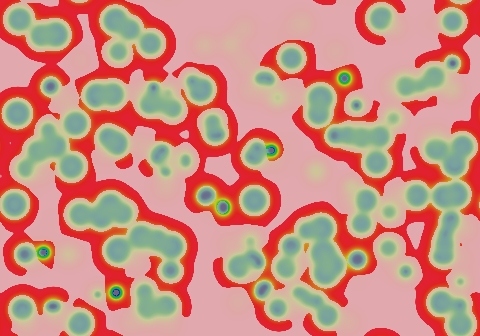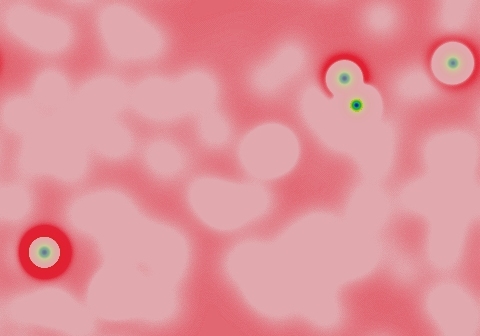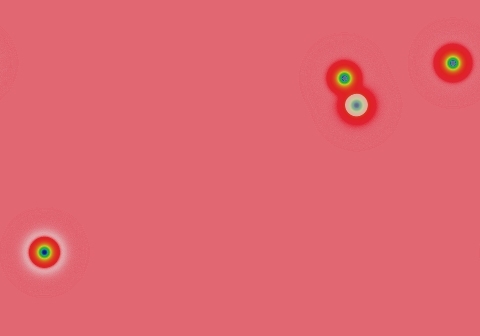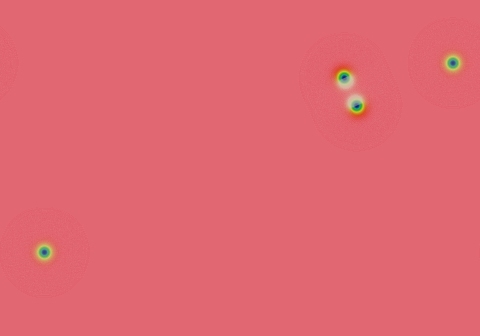Gray-Scott Model at F 0.0340, k 0.0710
These images and movie demonstrate the behavior of the Gray-Scott reaction-diffusion system with σ=Du/Dv=2 and parameters F=0.0340, k=0.0710.
At these parameter values, all viable starting patterns become "pulsars" that oscillate a fixed number of times before reaching the visible limit of ±3×10-6. The period of oscillation is about 175 tu. At these values of F and k, 17 oscillations occur before it decays below the visible limit of about ±3×10-6.
As is typical for solitons near the eastern frontier, those in close proximity drift slowly away from each other, exemplified here by the pair in the upper-right; drift speed diminishes exponentially with distance.
Categories: Munafo ν; Wolfram 2 (glossary of terms)
 increase F increase F
 | |||
 decrease k  |


|
15 frames/sec.; each fr. is 20 iter. steps = 10 tu; 1800 fr. total (18,000 tu) |  increase k 
|

|


| ||
 decrease F decrease F
 |
In these images:
- Color indicates level of u, ranging from purple (lowest u values) through blue, aqua, green, yellow and pink/red (highest u values)
- Areas where u is increasing are lightened to a light pastel tone; where u is decreasing the color is vivid.
- In areas where u is changing by less than ±3×10-6 per tu, an intermediate pastel color is seen. This includes areas that are in steady state or equilibrium.
''tu'' is the dimensionless unit of time, and ''lu'' the dimensionless unit of length, implicit in the equations that define the reaction-diffusion model. The grids for these simulations use Δx=1/143 lu and Δt=1/2 tu; the system is 3.2 lu wide. The simulation meets itself at the edges (periodic boundary condition); all images tile seamlessly if used as wallpaper.
Go back to Gray-Scott pattern index
This page was written in the "embarrassingly readable" markup language RHTF, and was last updated on 2015 Nov 07.
 s.27
s.27